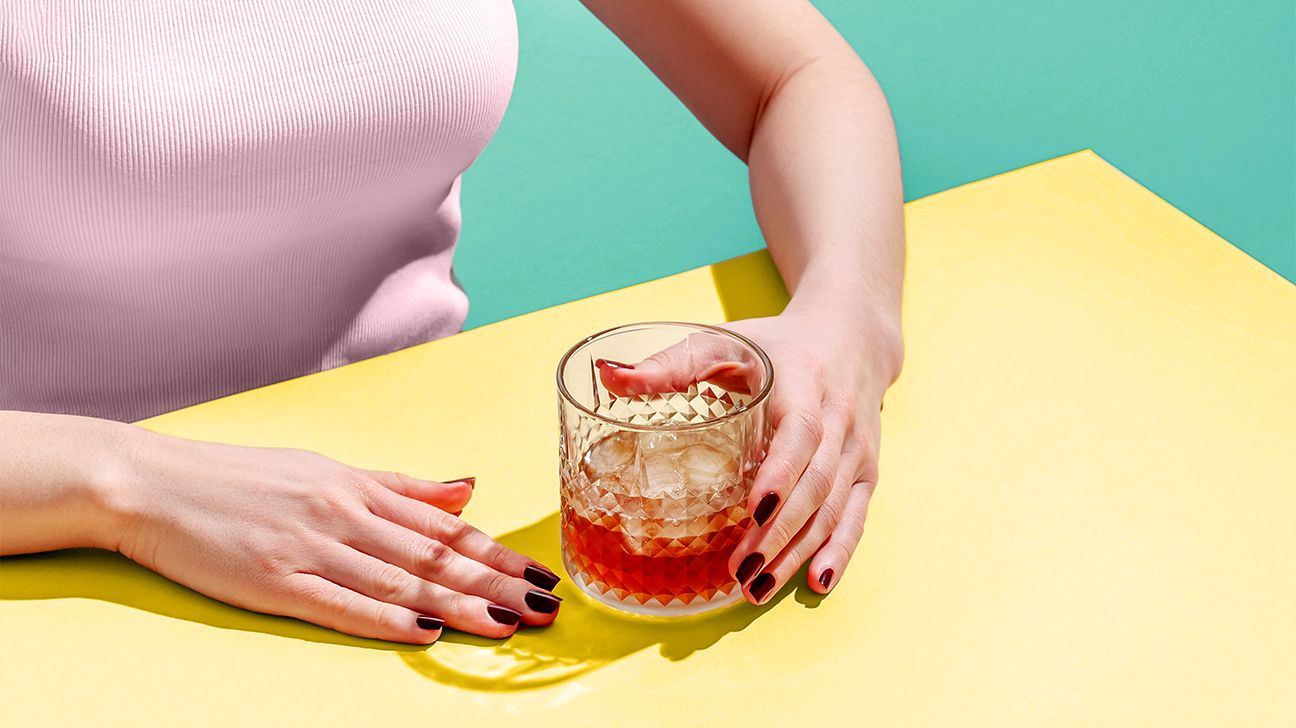Some folks with eczema say their favorite boozy bevvies wreak havoc on their skin. But what does science say? 🤔
Unfortunately, there haven’t been many studies on the link between alcohol and the itchy patches and cracked skin of an eczema flare-up. But that doesn’t mean the connection isn’t real for some people or certain types of eczema.
Let’s unpack the facts on eczema and alcohol.
How does alcohol affect eczema?
Experts are still unsure whether drinking alcohol makes eczema worse.
Some people living with atopic dermatitis (AD) or other forms of eczema report that drinking triggers symptoms, but researchers have found no consistent link between alcohol and eczema flares.
Folks with eczema can track their symptoms to pinpoint personal triggers and determine whether alcohol is an issue.

More than 31 million Americans live with atopic dermatitis (AD) or another form of eczema. Despite that, this chronic skin condition is still frequently misunderstood. Is it an autoimmune disease? A recurring rash? An allergic reaction?
The answer might be yes to all of that. Eczema can feel like an endless cycle of flares — intensely itchy, dry, scaly rashes — followed by seasons of remission. Research suggests that AD, one of the most common types of eczema, might be an autoimmune condition that is first triggered by an allergic reaction.
When your body’s immune system rallies against a perceived threat, it released compounds called histamines. These histamines can trigger unpleasant symptoms like red or purple splotches and intense itching.
So, if you have eczema and your body encounters a trigger (a new laundry detergent, perfume, or, maybe booze), the histamines can go a little haywire.
Basically, a flare-up can be helped along by an allergic response, but eczema is *more* than just an allergy. The longer you let a flare go unchecked and untreated, the worse it could get… so it’s super important to pinpoint your triggers and figure out which treatments help.
Short answer: we don’t know.
So far, researchers haven’t identified alcohol as a trigger for everyone living with eczema. That means it *might* be a trigger for you, but it also might not.
It could be a two-way street
A 2017 report noted that there’s a significant link between inflammatory skin conditions (hey-o, eczema) and alcohol use disorder. A small 2021 study of 385 dermatology patients also found that 23 percent of the folks with eczema also struggled to control their alcohol consumption.
But sussing out the exact relationship between eczema and alcohol is tricky. Which came first? Researchers still aren’t sure if heavy drinking triggers eczema flares *or* if folks experiencing a flare tend to drink to deal with the stress. Or maybe both are true.
Alcohol could exacerbate dry skin
Ever wondered why there’s always a line for the bathroom at the club? Two reasons:
- The more liquid you drink, the more you pee.
- But more importantly: alcohol is a diuretic, so it literally makes you pee more.
Anything dehydrating is no bueno for someone with itchy, dry skin.
Research suggests that alcohol also affects your skin barrier, which locks hydration in and keeps irritants out.
Alcohol’s propensity to dehydrate and weaken your skin’s natural protective barrier means it’s likely to do more harm than good when it comes to eczema.
PSA for pregnant peeps
A 2018 research review found that drinking alcohol while pregnant increases the baby’s risk of developing eczema.
Eczema triggers can be sneaky. They’re tricky to identify because of the lag between exposure to the irritant and reaction on your skin. Food-related flares typically take between 6 and 24 hours to erupt.
A few common triggers:
- dry skin
- stress
- external skin irritants (anything from detergent to fruit juice)
Dietary triggers
A 2018 research review found that food can affect eczema — but most folks have to complete an elimination diet to pinpoint their personal triggers. The review also said that kids are more likely than adults to have food-triggered eczema.
Here are a few common culprits:
Remember, these foods aren’t an issue for everyone with eczema. That’s why you should talk with your doc or allergist if you think your diet is exacerbating your skin probs. They can help you create an elimination diet specific to your symptoms.
There’s no clear scientific evidence that booze will trigger your next eczema flare. Still, some people report itching, dryness, and inflammation after a night out. So what’s a person with eczema to do?
- Know thyself. If your eczema symptoms get worse after drinking, pay attention. Make note of how much and what type of booze you had. Tracking your flares will help you pinpoint your triggers.
- Aim for moderation. Though the relationship is unclear, there is a link between eczema and alcohol use disorder. So know your limits and stick to them. Your mind and body will thank you! ✨
- Keep it light. Darker drinks like red wine or whiskey have more congeners than clear or light liquids. Some folks report fewer hangovers and flares by limiting their congener consumption.
- Stay hydrated. Drink water between cocktails and swap your boozy nightcap for a swig of Pedialyte or Gatorade. Hydration is key to smooth, flare-free skin.
- Science is still unclear on whether alcohol can cause an eczema flare.
- Alcohol can contribute to dry skin and general inflammation — two potential eczema triggers.
- Eczema triggers vary from person to person, so it’s up to the individual to monitor whether alcohol is an issue for them.
- There are steps you can take to keep your skin calm during a night out. Stay hydrated, drink in moderation, and opt for light or clear liquids when possible.

